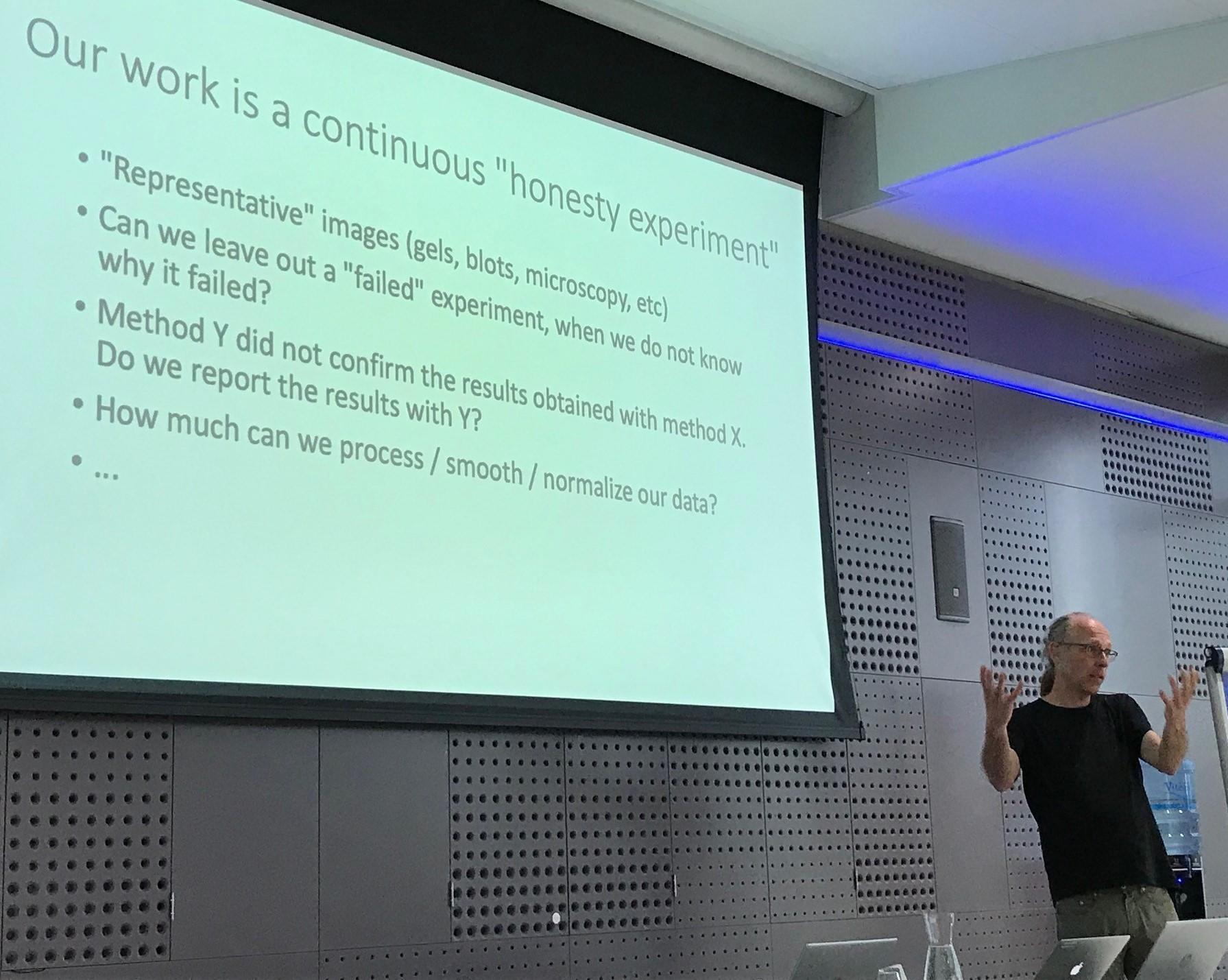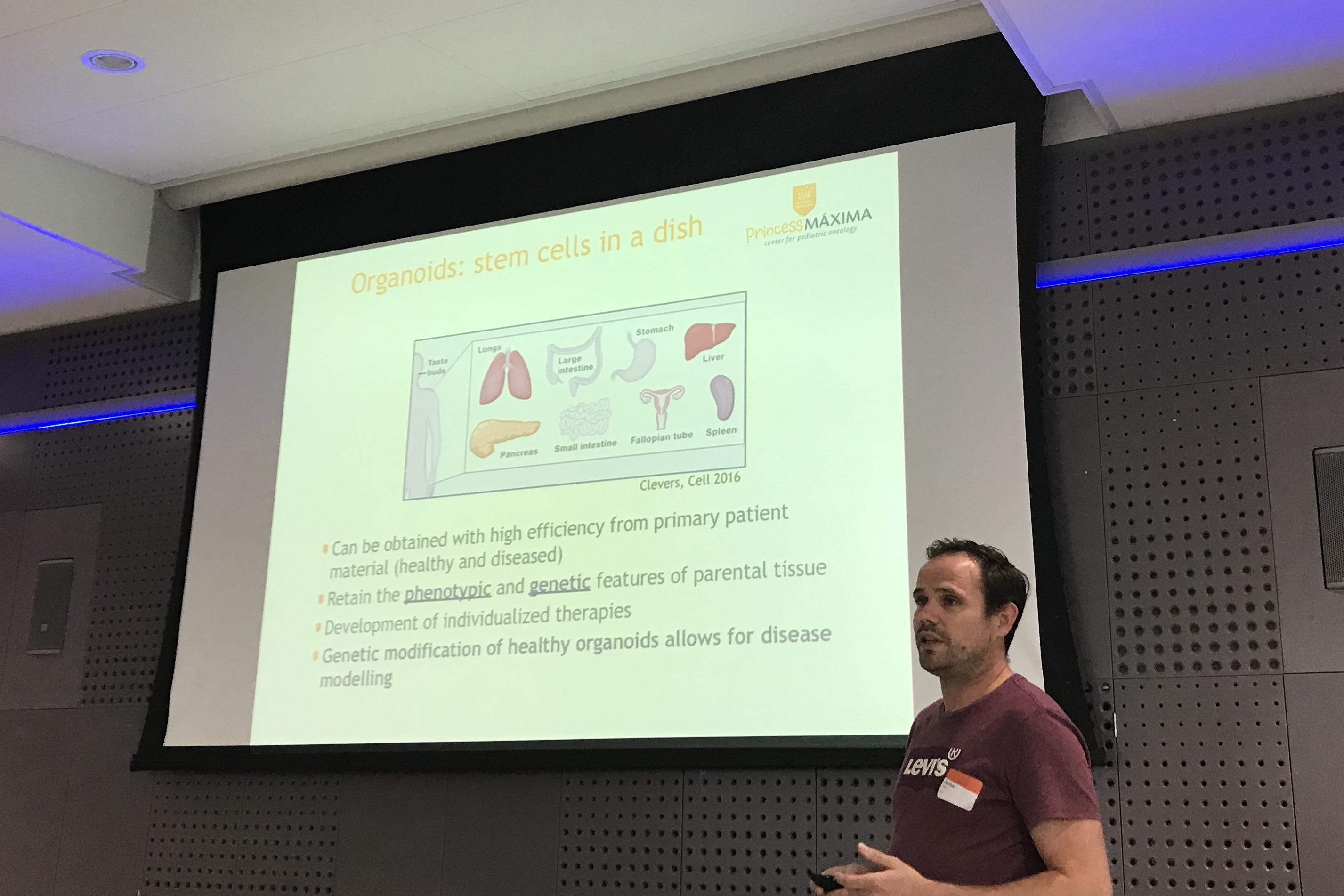Oncode’s first masterclass day was all about sharing insights on science and connecting the research community.
Introducing the Oncode Drug repurposing compound Library
Oncode’s first masterclass day was all about sharing insights on science and connecting the research community. We kicked off with an interactive session on the Oncode compound library and the Drug repurposing programme. Drug repurposing has emerged as an effective approach for the rapid identification of known drugs and compounds to treat new indications, holding the promise of rapid clinical impact at a far lower cost than de novo drug development. Oncode is setting up a Drug Repurposing Programme to contribute to its affordable healthcare programme. During the Masterclass, the drug repurposing compound library was introduced which has been specifically purchased for the Oncode community. Four experts on drug discovery and compound screening presented their vision and expertise on drug repurposing and screening. Paul Geurlink (LUMC), Roderick Beijersbergen (NKI) and Rene Overmeer (HUB), presented various approaches to drug screening ranging from organoid screens, flow cytometry-based assays to high content screens. Elliot Mock (LUMC) discussed how you can take screening results to the next level.
Fairly Open Science
After lunch, the plenary session on Fairly Open Sciencewas chaired by Bas van Steensel, was kicked off by Jasmin Böhmer (Jeroen de Ridder Lab, UMCU). Jasmin explained how data stewardship is implemented by the Centre for Molecular Medicine, providing support and advice are given for UMCU projects, as well as full involvement in collaborative projects (e.g. the DTL Data Steward Interest Group and ZonMw’s project Defining the profession of Data Stewards).
Judith Boer (Monique den Boer Lab, Prinses Máxima Center) shared her insights on the approach taken by the PMC to practically implement FAIR data stewardship across the organisation. The availability of dedicated data stewards for every research group is an important part of the strategy. This practical approach shows that if best practices and processes are in place, following good stewardship is relatively easy. Monique den Boer has recently been awarded the ZonMW Open Science Impuls for the responsive, transparent and responsible way of performing research by her research group.
Bas van Steensel closed the session with his vision on Open Science. Through a lively discussion, he pointed out that researchers have the societal responsibility to make sure the experimental protocols and (positive and negative) results of their research are made available as early as possible to the wider research community. This leads to more transparency and accountability, as well as higher quality and recognition of the research undertaken. You can find more advice from Bas in this interview..
Potential applications of organoid technology
During the last interactive session of the day, Oncode scientists shared their experience on how they use the organoid technology in their lab and how they combine it with other technologies such as microscopy and single cell analysis to study tumour heterogeneity (Hugo Snippert, UMCU) or together with a multi-omics approach to study the difference between stem cells and differentiated tissue (Rik Lindeboom, Michiel Vermeulen Lab). Another example was the powerful combination of genome editing and organoid technology studying multistep tumorigenesis (Jarno Drost, Prinses Máxima Center). Furthermore, Sylvia Boj- scientific director of the HUB – presented the power of organoid technology for patient stratification and drug screening. Finally, Joep Beumer (Hans Clevers Lab) presented the work on non-mammalian organoids, specifically on the snake venom gland.
We would like to thank all speakers for their contribution and we hope to see many of you during the next Masterclass Day!

